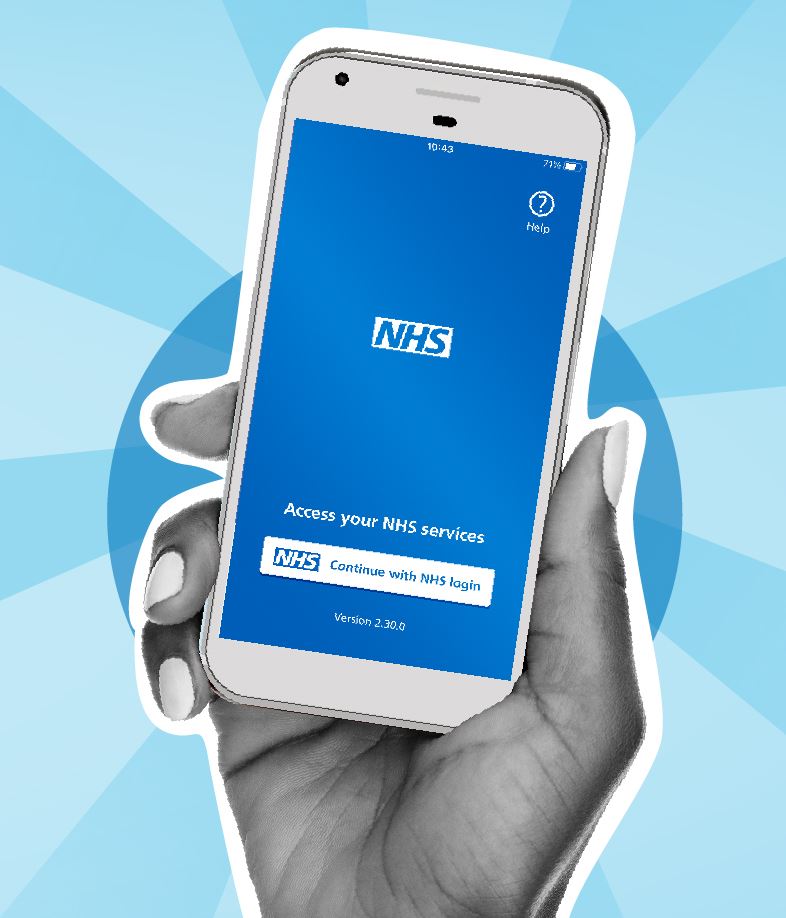Test Results
Results of Tests and Investigations
We will contact you by telephone, or by letter, only if a result is abnormal and you require treatment or further investigations. You will not be contacted if your result is normal. If you wish to enquire about the results of your tests please telephone at the end of surgery sessions. The administrative staff will give results to you or you may be asked to speak to the nurse or doctor. Adults' results will not be given to anyone other than the patient, except in exceptional circumstances.

NHS App
The NHS app is very useful to view your records including your test results and if you have not downloaded the app, click here.
Blood Tests
A blood test is when a sample of blood is taken for testing in a laboratory. Blood tests have a wide range of uses and are one of the most common types of medical test. For example, a blood test can be used to:
- assess your general state of health
- confirm the presence of a bacterial or viral infection
- see how well certain organs, such as the liver and kidneys, are functioning
A blood test usually involves the phlebotomist taking a blood sample from a blood vessel in your arm and the usual place for a sample is the inside of the elbow or wrist, where the veins are relatively close to the surface. Blood samples from children are most commonly taken from the back of the hand. The childs hand will be anaesthetised (numbed) with a special cream before the sample is taken.
You can find out more about blood tests, their purpose and the way they are performed on the NHS Choices website.
X-Rays
An X-ray is a widely used diagnostic test to examine the inside of the body. X-rays are a very effective way of detecting problems with bones, such as fractures. They can also often identify problems with soft tissue, such as pneumonia or breast cancer.
If you have an X-ray, you will be asked to lie on a table or stand against a surface so that the part of your body being X-rayed is between the X-ray tube and the photographic plate.
An X-ray is usually carried out by a radiographer, a healthcare professional who specialises in using imaging technology, such as X-rays and ultrasound scanners.
You can find out more about x-ray tests, how they are performed, their function and the risks by visiting the NHS Choices website.
Blood Test Results - what do the results of my test mean?
The descriptions below give an explanation and details behind the phrases used.
Normal. Take no action - This means that the doctor has looked at the result and deemed it to be within the normal range for the test and so no further investigation or treatment is needed.
Satisfactory. Take no action - This means that the doctor has looked at the results and deemed it to be very close to the normal range for the test and the result is not concerning. some patients have consistently abnormal results that are 'normal' to them.
Borderline. Take no action - This means that the doctor has looked at the result and deemed it to be just outside of the normal range and the result is not concerning.
Abnormal, but expected. Take no action - This means that the doctor has looked at the result and no further investigation or treatment is needed. This may be for the following reasons:
- The result is in keeping with your known medical condition(s)
- The result has already been discussed with you
- You are already on the correct treatment
Specimen lost/unusable. Repeat test - Unfortunately very occasionally samples are lost. Sometimes there is a delay in samples reaching the laboratory which can affect the quality of the specimen making it unusable. Occasionally an incorrect test is requested in which case a repeat may not be needed. On the other occasions an incorrect bottle or label may have been used.
Positive. – often used with tests for infections this means that the condition being tested for has been detected.
Negative. Take no action – Also often used with tests for infections. Self-explanatory. No further treatment or investigation(s) is needed.
Other messages you might see when checking your test results:
If symptoms persist speak to the doctor – this usually means the result is abnormal but expected and you are already on the correct treatment, however if your symptoms are not improving you should discuss with your doctor.
Patient to make a telephone appointment to discuss – The doctor would like to speak to you to explain the result(s) by telephone.
Repeat test – small fluctuations in test results are common and slightly abnormal results usually return to normal without the need for treatment. The GP would like to check your result has returned to normal or remained stable. There should be an indication of how long you should wait before rechecking your blood test.
Patient needs to start medication – your test result(s) indicate that you need some medication and there is a prescription issued for you. There should be an additional comment explaining what the treatment is for, however if you are unsure please book a telephone consultation with the doctor or nurse.
Due annual diabetic review – the surgery will contact you to arrange a time for you to come in and discuss your blood results during your annual diabetic review.
Page created: 16 December 2021
